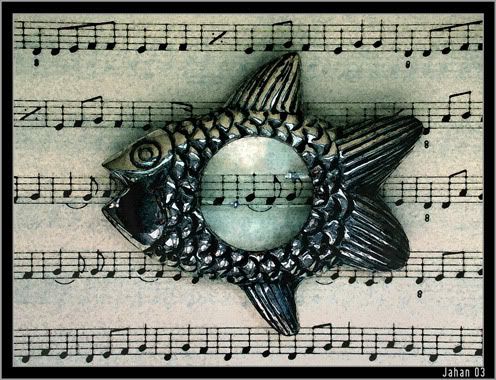
A new but unusual study taken in Greece has revealed that fish kept in aquariums will have more rapid growth if they listen to classical music. The study, which took place in the Department of Applied Hydrobiology at the Agricultural University of Athens, played Gilthead Seabream a bit of Mozart each day via an underwater speaker, to test their reaction. The music was played Monday to Friday, giving the Fish the weekend off.
Writing in the Journal of Fish Biology, the scientists described how "During the first 89 days of rearing, music resulted in enhanced growth." Those listening to the 18th Century composer grew
significantly better in the first 89 days than those whom listend only to the noise of the air pumps. It is hoped that these new findings can be used by farmers to improve the quality of reared Bream. This is the first results of their kind - other experiments done to look at the effects of sound on fish have usually shown negative or no results.
Although the results did show significant differences, it is unsure what exactly the fish heard. "Sound transmitted in the present study could have been just perceived as an increase in ambient noise (by 19db), a variation in ambient noise (as music piece chosen had its ups and downs), a novel previously non-existent sound within the tank, shock or enrichment and maybe as music per se."
Click on the Practical Fishkeeping link for more information on this article, and other article about your aquarium needs.




